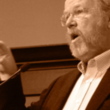Cultish: The Language of Fanaticism
(Libby/OverDrive eBook, Kindle)
Available Platforms
Description
“One of those life-changing reads that makes you see—or, in this case, hear—the whole world differently.” —Megan Angelo, author of Followers
“At times chilling, often funny, and always perceptive and cogent, Cultish is a bracing reminder that the scariest thing about cults is that you don't realize you're in one till it's too late.”—Refinery29.com
The New York Times bestselling author of The Age of Magical Overthinking and Wordslut analyzes the social science of cult influence: how “cultish” groups, from Jonestown and Scientologists to SoulCycle and social media gurus, use language as the ultimate form of power.
What makes “cults” so intriguing and frightening? What makes them powerful? The reason why so many of us binge Manson documentaries by the dozen and fall down rabbit holes researching suburban moms gone QAnon is because we’re looking for a satisfying explanation for what causes people to join—and more importantly, stay in—extreme groups. We secretly want to know: could it happen to me? Amanda Montell’s argument is that, on some level, it already has . . .
Our culture tends to provide pretty flimsy answers to questions of cult influence, mostly having to do with vague talk of “brainwashing.” But the true answer has nothing to do with freaky mind-control wizardry or Kool-Aid. In Cultish, Montell argues that the key to manufacturing intense ideology, community, and us/them attitudes all comes down to language. In both positive ways and shadowy ones, cultish language is something we hear—and are influenced by—every single day.
Through juicy storytelling and cutting original research, Montell exposes the verbal elements that make a wide spectrum of communities “cultish,” revealing how they affect followers of groups as notorious as Heaven’s Gate, but also how they pervade our modern start-ups, Peloton leaderboards, and Instagram feeds. Incisive and darkly funny, this enrapturing take on the curious social science of power and belief will make you hear the fanatical language of “cultish” everywhere.
More Details
Similar Titles From NoveList
Similar Authors From NoveList
Published Reviews
Booklist Review
The author of Wordslut (2019) turns her linguistic examinations to belief and belonging. Cults use an insider lingo to draw in new recruits and make them feel like valued members of the community. And "cult" doesn't necessarily equate to, say, Jonestown. The concept is rooted in many group enterprises, from Mary Kay to SoulCycle to Amway. Montell demystifies this twisty language into something readers will recognize, whether it's being employed to manipulate or to motivate. She links the linguistic trick from Heaven's Gate and Scientology down to "woo-woo" in all its different guises: multilevel marketing, religious organizations, even exercise gurus and QAnon. Implicitly stated, it's all about the American dream: perfecting oneself spiritually, bodily, and financially, all promising a deep connection to others. Reading Montell is like a satisfying chat session with your bestie--albeit one that focuses on obsession, language tricks, and manipulation. Her personal connection to the topic is compelling, as we learn of her father's teen experience living in Synanon and her own disturbing brush with Scientology. Cultish will have huge appeal for those who have been listening to the podcasts The Dream or American Rehab, or watching The Vow. Montell's masterful translation of our need to belong will mesmerize.
Publisher's Weekly Review
Journalist Montell (Wordslut) argues in this vivid study that "language is the key means by which all degrees of cultlike influence occur." Uncovering commonalities in the use of "secret mantras and code words" to attract and retain followers, Montell surveys the indoctrination techniques and conformism of cults such as Heaven's Gate and the Peoples Temple (whose adherents committed mass suicide in South America in 1978), as well as "woo-woo wellness influencers," QAnon, and fitness groups such as Peloton and CrossFit. Combining personal anecdotes (her father was partially raised in Synanon, a San Francisco drug rehab center turned church), interviews with former cult members, and anthropological analysis, Montell documents how cult leaders including "spiritual guru" Bentinho Massaro employ "thought-terminating clichés, intended to gaslight followers into mistrusting science, as well as their own thoughts and emotions," and argues that understanding the rhetoric of cults can help to distinguish between benign and dangerous communities, and reduce the stigma that can further entrap people in cults. Though the personal digressions (including an overlong account of taking a "personality assessment" at the Church of Scientology in L.A.) occasionally distract from the bigger picture, Montell is an engaging and well-informed tour guide through the world of "cultish scenarios." This intriguing account is worth a look. (June)
Kirkus Book Review
A scrutiny of the social science behind cult communication. With the same verve demonstrated in her debut on feminism and language, Wordslut (2019), Montell explores how language can manipulate masses of people in detrimental ways. Using accessible prose, the author discusses the varied definitions of the word cult, the dangers of universally demonizing its terminology, and its murky history as society's relationship with spirituality has evolved. Montell has always been intrigued by her father's involvement in the Synanon movement in the 1970s, and she explores a wide range of "fanatical fringe groups with extreme ideologies." The author compares their initial appeal to scanning the scene of an accident: The brain must assess the personal threat level and activate its "fight or flight" reaction. There is also the organic human need for communal intimacy, purpose, belonging, and organizational order. Montell intensively explores how the misleading euphemisms, politicized buzzwords, mantras, and subconsciously suggestive phrasing of "cult language" can be channeled and weaponized to mercilessly exploit participants of such "organizations" as QAnon or the notorious sex-trafficking group NXIVM. The author is an engaging storyteller, sharing tales of bizarre cult behavior found in a vast spectrum of memberships and organizations, including her own hard-sell encounter with Hollywood Scientologists. She also explores the mechanics of complex, multilevel marketing schemes like Amway. She chronicles her often shocking interviews with people who have been seduced by shadowy New Age groups like the 3HO Foundation as well as survivors of suicide cults like the Jonestown People's Temple and the doomsayers of the Heaven's Gate group. Of course, any discussion of cultlike language would be incomplete without hard-core fitness programs, and Montell diligently examines CrossFit, Peloton, and SoulCycle. With a provocative combination of interviews, anecdotes, and scientific and psychological research, Montell educates and empowers readers to become more aware of "the varying dialects of Cultish that imbue our daily lives." A fascinating, enthusiastic narrative on the loaded language of cults. Copyright (c) Kirkus Reviews, used with permission.
Booklist Reviews
*Starred Review* The author of Wordslut (2019) turns her linguistic examinations to belief and belonging. Cults use an insider lingo to draw in new recruits and make them feel like valued members of the community. And "cult" doesn't necessarily equate to, say, Jonestown. The concept is rooted in many group enterprises, from Mary Kay to SoulCycle to Amway. Montell demystifies this twisty language into something readers will recognize, whether it's being employed to manipulate or to motivate. She links the linguistic trick from Heaven's Gate and Scientology down to woo-woo in all its different guises: multilevel marketing, religious organizations, even exercise gurus and QAnon. Implicitly stated, it's all about the American dream: perfecting oneself spiritually, bodily, and financially, all promising a deep connection to others. Reading Montell is like a satisfying chat session with your bestie—albeit one that focuses on obsession, language tricks, and manipulation. Her personal connection to the topic is compelling, as we learn of her father's teen experience living in Synanon and her own disturbing brush with Scientology. Cultish will have huge appeal for those who have been listening to the podcasts The Dream or American Rehab, or watching The Vow. Montell's masterful translation of our need to belong will mesmerize. Copyright 2021 Booklist Reviews.
Publishers Weekly Reviews
Journalist Montell (Wordslut) argues in this vivid study that "language is the key means by which all degrees of cultlike influence occur." Uncovering commonalities in the use of "secret mantras and code words" to attract and retain followers, Montell surveys the indoctrination techniques and conformism of cults such as Heaven's Gate and the Peoples Temple (whose adherents committed mass suicide in South America in 1978), as well as "woo-woo wellness influencers," QAnon, and fitness groups such as Peloton and CrossFit. Combining personal anecdotes (her father was partially raised in Synanon, a San Francisco drug rehab center turned church), interviews with former cult members, and anthropological analysis, Montell documents how cult leaders including "spiritual guru" Bentinho Massaro employ "thought-terminating clichés, intended to gaslight followers into mistrusting science, as well as their own thoughts and emotions," and argues that understanding the rhetoric of cults can help to distinguish between benign and dangerous communities, and reduce the stigma that can further entrap people in cults. Though the personal digressions (including an overlong account of taking a "personality assessment" at the Church of Scientology in L.A.) occasionally distract from the bigger picture, Montell is an engaging and well-informed tour guide through the world of "cultish scenarios." This intriguing account is worth a look. (June)
Copyright 2021 Publishers Weekly.Reviews from GoodReads
Citations
Montell, A. (2021). Cultish: The Language of Fanaticism (Unabridged). HarperCollins.
Chicago / Turabian - Author Date Citation, 17th Edition (style guide)Montell, Amanda. 2021. Cultish: The Language of Fanaticism. HarperCollins.
Chicago / Turabian - Humanities (Notes and Bibliography) Citation, 17th Edition (style guide)Montell, Amanda. Cultish: The Language of Fanaticism HarperCollins, 2021.
Harvard Citation (style guide)Montell, A. (2021). Cultish: the language of fanaticism. Unabridged HarperCollins.
MLA Citation, 9th Edition (style guide)Montell, Amanda. Cultish: The Language of Fanaticism Unabridged, HarperCollins, 2021.
Copy Details
| Collection | Owned | Available | Number of Holds |
|---|---|---|---|
| Libby | 1 | 0 | 5 |



































